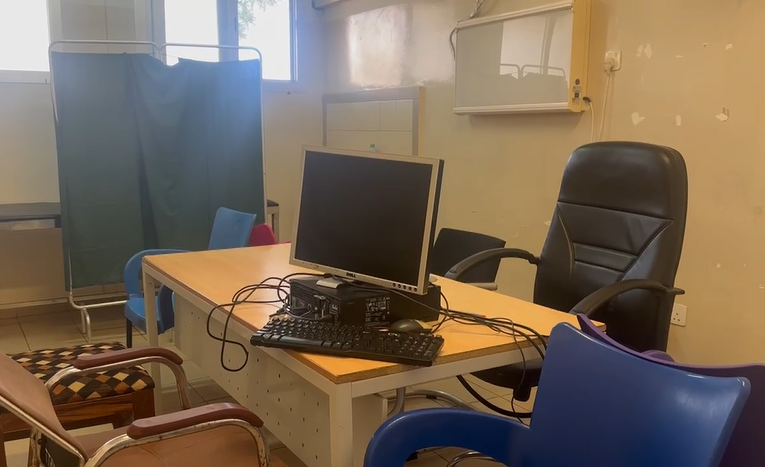The Tamale Teaching Hospital (TTH) descended into a state of disarray on Thursday, April 24, 2024, as patients seeking medical care were confronted with deserted consulting rooms. The unexpected closure stemmed from an indefinite suspension of emergency and outpatient services initiated by the Doctors’ Association of Tamale Teaching Hospital (DATTH) the previous day. The doctors’ drastic action was a direct response to what they characterized as “unwarranted attacks” from Health Minister Kwabena Mintah Akandoh and Tamale North MP Alhassan Suhuyini. This sudden disruption left patients stranded and confused, creating a palpable sense of frustration and uncertainty within the hospital’s walls.
The catalyst for the doctors’ strike was an incident that occurred during Health Minister Akandoh’s visit to the hospital’s Accident and Emergency Unit on Tuesday, April 22, 2024. While the precise details of the incident remain somewhat ambiguous, it prompted a swift and strong condemnation from DATTH. The doctors perceived the Minister’s actions, coupled with subsequent comments from MP Suhuyini, as aggressive and disrespectful, culminating in their decision to withdraw services. The emergency general assembly meeting held by DATTH on April 23rd solidified their collective stance, resulting in the immediate suspension of critical medical services. This decision had a profound and immediate impact on the hospital’s ability to function, leaving patients vulnerable and healthcare access severely compromised.
A visit by Citi News on Thursday, April 24, painted a stark picture of the situation at TTH. Long queues of patients snaked through the emergency and outpatient departments, their hopes of receiving medical attention dashed by the absence of doctors and medical personnel. The normally bustling areas were eerily silent, a testament to the effectiveness of the doctors’ strike. The visual of empty consulting rooms and waiting patients underscored the gravity of the situation, highlighting the disruption caused by the impasse between the doctors and the government officials. The scene captured the anxiety and desperation of patients who had travelled to the hospital seeking much-needed medical care, only to be met with closed doors and an uncertain future.
The suspension of services at TTH had far-reaching consequences, effectively paralyzing the hospital’s ability to provide essential medical care. The General Outpatient Department (OPD), the primary point of access for routine medical consultations, was shuttered. Pregnant women seeking antenatal care were turned away, jeopardizing their health and that of their unborn children. Specialized clinics catering to specific medical conditions were also closed, leaving patients with complex medical needs without access to the specialized care they require. The closure of the Pediatric OPD was particularly concerning, as it left children vulnerable and without access to essential medical services. This comprehensive shutdown of services created a healthcare crisis, leaving the community without a functioning hospital and patients in dire need of medical attention.
The situation at TTH underscores the critical role of communication and mutual respect in maintaining a functional healthcare system. The breakdown in communication between the doctors and the government officials led to a rapid escalation of tensions, culminating in the suspension of essential services. The doctors’ decision to withdraw their services, while drastic, reflects their deep-seated frustration and their perception of being unfairly targeted. The incident highlights the need for open dialogue and constructive engagement between healthcare professionals and government officials to address concerns and find solutions that prioritize patient care. A collaborative approach is crucial to ensuring the smooth functioning of healthcare institutions and preventing disruptions that compromise the health and well-being of the community.
The indefinite suspension of services at TTH not only disrupted the delivery of healthcare but also eroded public trust in the healthcare system. Patients, already facing health challenges, were burdened with the added stress of uncertainty and the difficulty of accessing alternative medical care. The situation also placed a strain on other healthcare facilities in the region, as patients sought care elsewhere, potentially overwhelming their capacity. Resolving the impasse between the doctors and the government officials is paramount to restoring normalcy at TTH, rebuilding public trust, and ensuring that patients have access to the essential medical care they deserve. The long-term impact of this disruption will depend on how swiftly and effectively the issues are addressed, with the hope of preventing similar incidents in the future.


